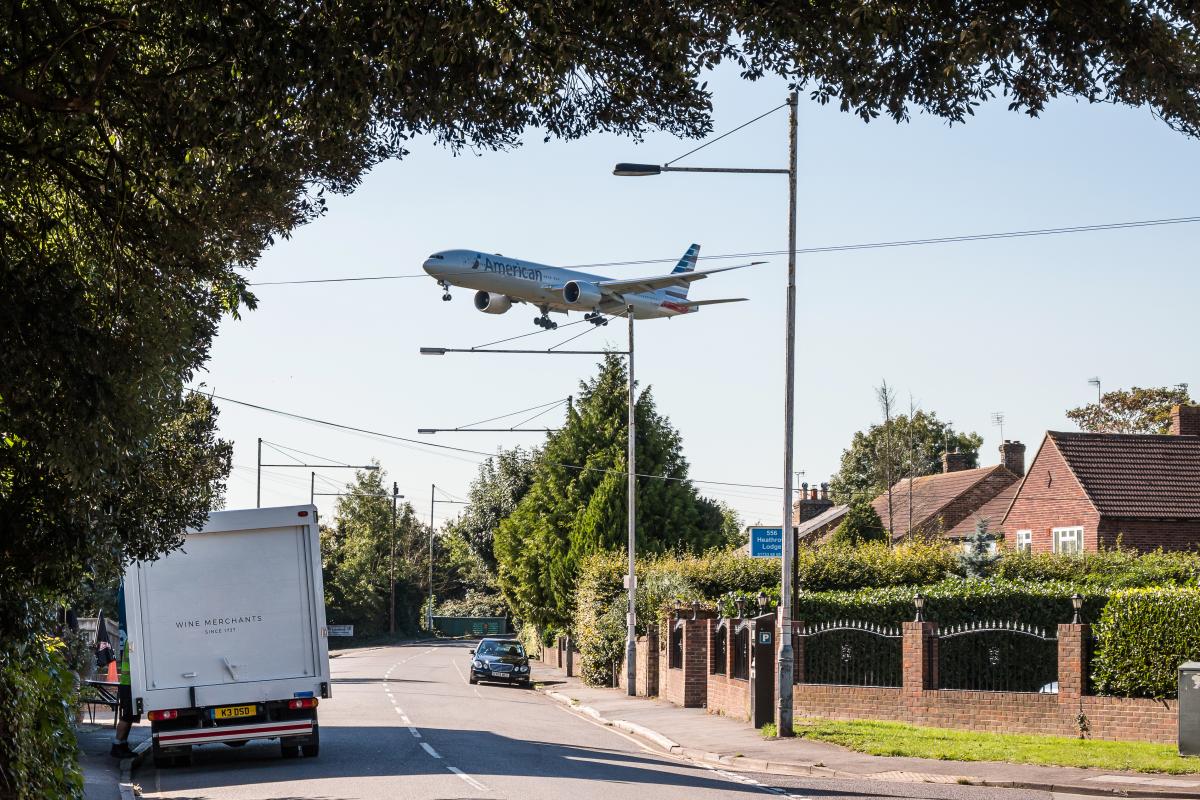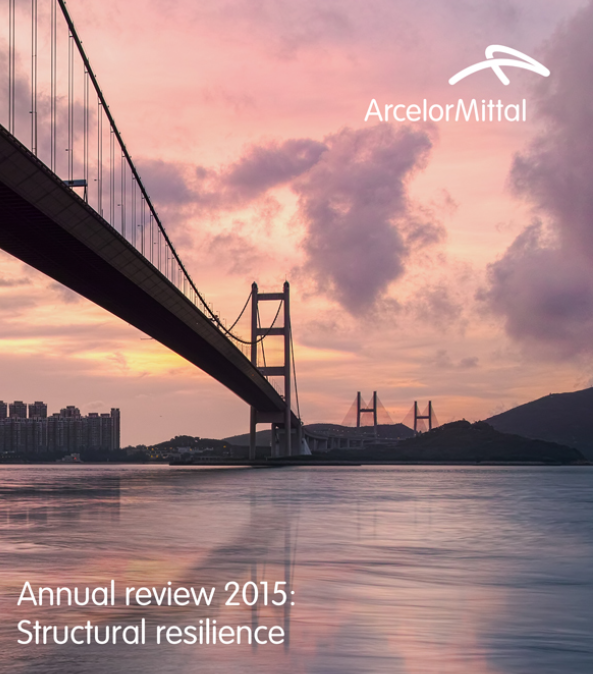Syrian refugees in supply chains, Heathrow expansion decision, climate A list, banks stockpile bitcoins, China tech firms back bike sharing, investor demand for ESG data, and better eyes on forests
Child refugees in Turkey making clothes for M&S, Zara, Mango, Asos
Investigative BBC programme Panorama has uncovered Syrian refugee children in Turkey working in clothing factories that supply Marks and Spencer (M&S), Zara, Mango, and online fashion retailer Asos. The undercover documentary found that refugees, who seldom have work permits, often earned just over a pound an hour.
M&S says its inspections did not find Syrian refugees working in its supply chain, though Panorama found seven working in one of its main factories. And while Asos accepts its clothes were made in the factory, it said it was not an approved factory of the company. A spokesperson for M&S said the company is offering permanent legal employment to any Syrians who were employed in the factory, while Asos said the children will be financially supported to return to school.
Danielle McMullan, from the Business & Human Rights Resource Centre, told Panorama that brands need to take responsibility for their supply chains: "It's not enough to say we didn't know about this, it's not our fault.”
The Business & Human Rights Resource Centre surveyed 38 high street brands on the measures they are taking to protect refugee workers in Turkey. Its analysis showed that while a few have introduced better policy and practice, abuse remains endemic.
How far even top-performing companies have to go on this issue is illustrated by another report from the Business & Human Rights Resource Centre, which ranked M&S and SAB Millar highest among the 27 FTSE 100 companies that have so far reported on their actions to eradicate forced labour from their supply chains, as required under the Modern Slavery Act. The top two companies only made it to tier three (with tier one being the highest) in the report’s 10-tier ranking system.
CDP publishes Climate A list
UK companies make up 8% of CDP’s annual Climate A list, which grades companies on progress on reducing their CO2 emissions and for their disclosure of climate mitigation plans and risks. According to the CDP, which published the list as part of its Out of the Starting Blocks: tracking progress on corporate climate action report for institutional investors this week, the 193 companies that make its 2016 list produced 6% higher returns than other firms over the past four years.

This year CDP collaborated with global index specialist Stoxx and the South Pole Group to develop a new series of low-carbon indices based on the A list companies.
UK companies Sky, Tesco, Diageo, HSBC, Lloyds, AstraZeneca, GlaxoSmithKline and the National Grid all received A grades. Among tech companies Apple, Cisco, Hewlett-Packard, Microsoft and Oracle feature on the list, but Facebook and Amazon were excluded for failing to disclose their climate risks, and Google also fails to make the A grade, despite being included in last year’s list.
Clash over Heathrow expansion decision
Green groups and business leaders clashed over the government’s decision this week to approve a third runway for Heathrow; with the former saying it will make a mockery of the UK’s climate and air pollution targets, and the Confederation for Business Industry hailing it as a move that will unlock jobs and growth for the UK post-Brexit.

CBI president Paul Drechsler said: "A new runway at Heathrow is really fantastic news… It will create the air links that will do so much to drive jobs and unlock growth across the UK, allowing even more of our innovative, ambitious and internationally focused firms, from Bristol to Belfast, to take off and break into new markets.”
But Professor Joanna Haigh, co-director of the Grantham Institute for Climate Change and the Environment, warned: “Expansion at Heathrow, or any other airport, will create a serious obstacle to the UK meeting its greenhouse gas and air quality targets.”
Greenpeace launched an appeal for funds to help pay for a judicial review of the decision. John Sauven, Greenpeace UK's executive director, said: “We stand ready to take the May government to court on this, side by side with Conservative west London councils. This runway has been defeated before and can be defeated again.”
UK banks stockpile bitcoins to pay off cyber criminals
A number of London’s largest banks are stepping up defence against cyber attacks. They are looking to stockpile bitcoins to pay off cyber criminals who threaten to bring down their IT systems. The virtual currency, which is highly prized by criminal networks because it cannot be traced, is being acquired by blue chip companies, which believe it is cheaper to pay off the blackmailers than risk an attack.

“From a purely pragmatic perspective, financial institutions are now exploring the need to maintain stocks of bitcoin in the unfortunate event that they themselves become the target of a high-intensity attack, when law enforcement perhaps might not be able to assist them at the speed with which they need to put themselves back in business,” says Dr Simon Moores, a former technology ambassador for the UK government and chair of the annual international e-Crime Congress.
Chinese tech giants betting on ‘Uber for bikes’
Following China’s largest ride-sharing company Didi Chuxing's $35bn acquisition of Uber’s Chinese operations in August, local tech investors are pouring hundreds of millions of dollars into what they believe will be the next big thing: Uber for bikes.
Shanghai's MoBike and Beijing-based Ofo have each raised more than $100m in the past month alone from bullish investors banking on bike-sharing apps, similar to publically funded bike-sharing schemes in many European and North American cities.

Riders use smartphone apps to unlock and pay the cost of hire. Ofo charges 1 yuan, or $0.15 per hour to rent. Users are then free to leave the bikes wherever their journey ends, a feature both companies say is a major plus over traditional rental services, which require bikes to be returned to a parking station.
Analyst accreditation puts focus on ESG
The CFA Institute, a global association that offers the chartered financial analyst credential to investment professionals, is planning to update its 2017 curriculum to include more focus on corporate ethics, risk management and environmental, social, and governance (ESG) issues, following feedback from its investment management practitioners.

“CFAs are telling us loud and clear that investors are demanding ESG, and there's increasing academic evidence that sustainable companies are better-managed companies and have higher risk-adjusted returns," says Steve Horan, managing director of credentialing for the CFAs Charlottesville, Virginia-based institute.
The updated curriculum aims to ensure analysts are trained in understanding how to incorporate material social and environmental issues into investment models and strategies.
New software to help protect forests
Sustainability and software data company Ecometrica has announced a major enhancement of its Earth Observation (EO) Platform, which will empower governments, NGOs, farmers, corporates and investors across the world to manage natural resources in remote locations more effectively.
Harnessing innovative technology developed by University of Edinburgh, Ecometrica's Earth Observation Platform now brings together vast quantities of data collected by Europe's Sentinel-1 satellite mission. These provide continuous radar images, mapping Europe every three days and the entire world once every 12 days. As the radar can penetrate any cloud cover, data is guaranteed to be available, irrespective of poor conditions, and enables bespoke data collection over smaller areas.

Sarah Middlemiss, space programme administrator at Ecometrica, said: "The data from Sentinel-1 offers far greater detail and consistency than any other freely available source. With the help of Ecometrica's EO Labs, terabytes of data beamed by Sentinel-1 can be pooled into a relevant, accessible format, offering a bird's eye view of global environmental impacts, such as forest patterns and water resources, irrespective of the weather.”
Arcelor Mittal has X-Factor for reporting
Mining giant Arcelor Mittal won an award for its CSR reporting at Ethical Corporation's 10th Annual CR Reporting and Communications Summit. The company edged out De Beers Group to win the X-factor award after both annual reports were presented at last week's summit.
Steve Wade, Ethical Corporation's global project director, said the DeBeers report, presented by Letitia Weeks " was a strong contender, with a real focus on stakeholders, resulting in nearly 400% increase in engagement and 97% employee satisfaction".
However he said that Arcelor Mittal integrated report, presented by sustainability and communications professional Annie Heaton, had come out tops, with its strong focus on materiality. " What really gives the Arcelor Mittal Report the X-Factor is the strong alignment to strategy and not having a report in the 'conventional sense produced, but having a digital reporting hub that enhances the experience for stakeholders."

supply chains climate Human rights emissions Environment CSR

